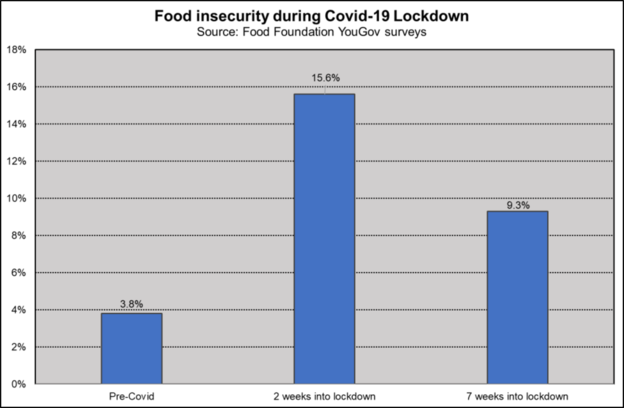Impact of Covid-19
The Impact of Covid-19 on Food Insecurity in the UK
The Food Foundation have been surveying adults across the UK to see how Covid-19 and the lockdown have impacted on experiences of food insecurity. They are continuing to release data as new waves of the survey are undertaken and their most up to date findings are available here.
Looking at the findings from the first four waves of the survey, food insecurity has increased during lockdown.
The first weeks of lockdown saw the highest rises in food insecurity, up to 15.6%, but it remained higher than pre-lockdown levels at seven weeks into the lockdown.
They have also looked at the reasons behind food insecurity. These are generally economic, but the impact of Covid-19 has meant that food availability is also an issue. This was particularly true in the earliest weeks of lockdown. Compared with the second week of lockdown, by week 7 a smaller proportion of people were experiencing food insecurity due to a lack of food in shops. However, a larger proportion were experiencing food insecurity for economic reasons.
Higher levels of food insecurity were disproportionately felt by BME respondents and by respondents who had a health problem or a disability. Levels were also higher for families with children who would usually receive free school meals and for families who have needed to self-isolate.
Additional Resources
-
ResourceWednesday, 2 June 2010
SIMD Analysis: Future Projections
An analysis of the reasons behind the recent decline of deprivation in Glasgow, with tend projections towards 2015. -
ResourceSunday, 1 November 2009
Miniature Glasgow - Video
An extension of the GCPH's work profiling Glasgow's health, produced in collaboration with the International Future Forum.







